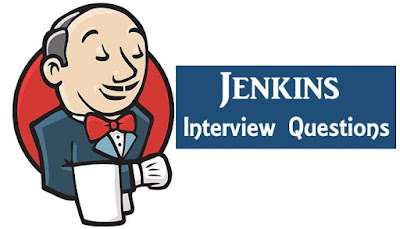Question: What Is
Jenkins?
Jenkins is self-contained, open source automation server used to
automate all sorts of tasks related to building, testing, and delivering or
deploying software.
Jenkins is one of the leading open source automation servers
available. Jenkins has an extensible, plugin-based architecture, enabling
developers to create 1,400+ plugins to adapt it to a multitude of build, test
and deployment technology integrations.
Questions: What is a Jenkins Pipeline?
Jenkins Pipeline (or simply “Pipeline”) is a suite of plugins
which supports implementing and integrating continuous delivery pipelines into
Jenkins.
Question: What is the difference between Maven,Ant,Gradle and
Jenkins ?
Maven and Ant are Build Technologies whereas Jenkins is a
continuous integration tool.
Question: Why do we
use Jenkins?
Jenkins is an open-source
continuous integration software
tool written in the Java programming language for testing and reporting on
isolated changes in a larger code base in real time.
The Jenkins software enables developers to find and solve defects in a code
base rapidly and to automate testing of their builds.
Question: What are
Jobs in Jenkins?
Jenkins can be used to perform the typical
build server work, such as doing continuous/official/nightly builds, run tests,
or perform some repetitive batch tasks. This is called “free-style software project” in Jenkins.
Please Click on Download button to download this questions for your easy reference.
Please Click on Download button to download this questions for your easy reference.
Question: How do
you configuring automatic builds in Jenkins?
Builds in Jenkins can
be triggered periodically (on a schedule, specified in configuration),or when
source changes in the project have been detected, or they can be automatically triggered
by requesting the URL.
Question: Which SCM
tools Jenkins supports?
Jenkins supports version control tools, including AccuRev, CVS,
Subversion, Git, Mercurial, Perforce, ClearCase and RTC, and can execute Apache
Ant, Apache Maven and arbitrary shell scripts and Windows batch commands.
Question: Why do we
use Pipelines in Jenkins?
Pipeline adds a powerful set of automation tools onto Jenkins,
supporting use cases that span from simple continuous integration to
comprehensive continuous delivery pipelines.
By modeling a series of related tasks, users can take advantage
of the many features of Pipeline:
Code: Pipelines are implemented in code and typically checked
into source control,giving teams the ability to edit, review, and iterate upon
their delivery pipeline.
Durable: Pipelines can survive both planned and unplanned
restarts of the Jenkins master.
Pausable: Pipelines can optionally stop and wait for human input
or approval before continuing the Pipeline run.
Versatile: Pipelines support complex real-world continuous
delivery requirements, including the ability to fork/join, loop, and perform
work in parallel.
Extensible: The Pipeline plugin supports custom extensions to
its DSL and multiple options for integration with other plugins.
Question: How do
you create Multibranch Pipeline in Jenkins?
The Multi branch Pipeline project type enables you to implement
different Jenkins files for different branches of the same project.
In a Multi branch Pipeline project, Jenkins automatically
discovers, manages and executes Pipelines for branches which contain a Jenkins
file in source control.
Question: What is a
Jenkins file?
Jenkins file is a text file containing the definition of a Jenkins
Pipeline and checks into source control.
Question: What are
CI Tools?
Below is the list of few popular Continuous Integration tools:
Jenkins
TeamCity
Travis CI
Go CD
Bamboo
GitLab CI
CircleCI
Codeship
Please Click on Download button to download this questions for your easy reference.
Please Click on Download button to download this questions for your easy reference.





Can you please update
ReplySelenium(java) interview questions and answers.